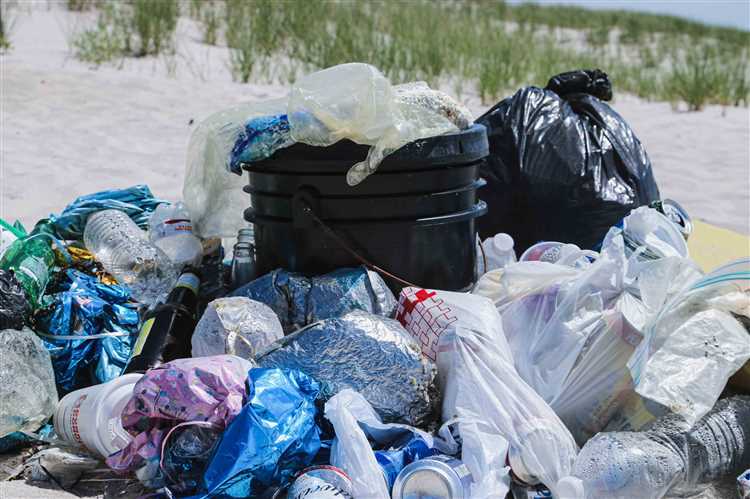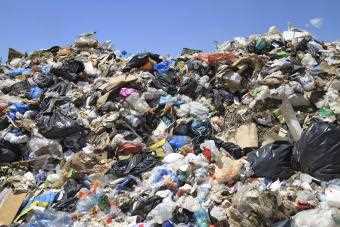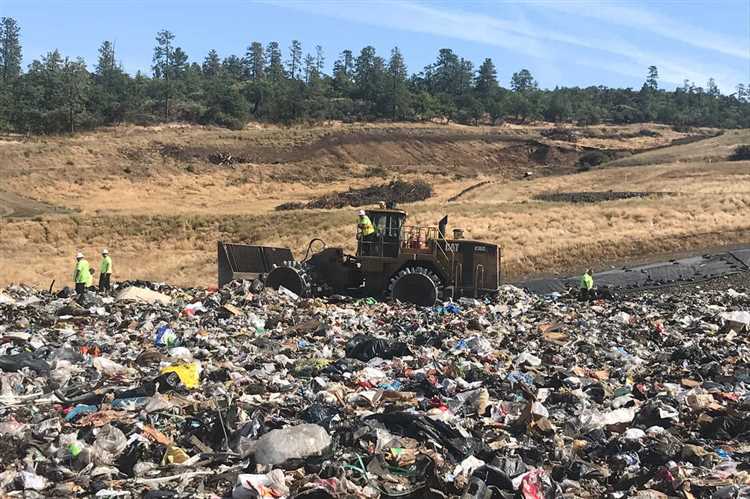Plastic pollution is a growing concern around the world, and failing to recycle plastic only exacerbates the problem. Plastic is a versatile and convenient material that is used in a wide range of products, from packaging to household items. However, its durability and resistance to degradation pose a significant challenge when it comes to disposal. When plastic is not properly recycled, it can have severe negative effects on the environment, wildlife, and human health.
One of the most evident consequences of not recycling plastic is the pollution of our oceans and waterways. Plastic waste often ends up in rivers and eventually makes its way into the sea, where it accumulates and threatens marine life. Marine animals, such as turtles, birds, and fish, can become entangled in plastic debris or mistake it for food. This can lead to injury, suffocation, and even death. Plastic litter in our oceans also disrupts the ecosystem, as it can block sunlight from reaching marine plants and affect the balance of underwater habitats.
In addition to ocean pollution, failing to recycle plastic also contributes to the greenhouse gas emissions associated with plastic production. When plastic is not recycled, more virgin plastic needs to be produced, which requires the extraction of non-renewable resources and the release of harmful greenhouse gases. The production of plastic also consumes large amounts of energy, further contributing to carbon emissions and climate change. By recycling plastic, we can reduce the demand for new plastic production and minimize its environmental impact.
Not recycling plastic also results in the waste of valuable resources, as plastic is made from non-renewable fossil fuels. When plastic ends up in landfills or is incinerated, these resources are lost forever. By recycling plastic, we can conserve natural resources and promote a more sustainable approach to resource management. Recycling also saves energy compared to producing new plastic from scratch, further reducing its environmental footprint.
In conclusion, failing to recycle plastic has serious negative effects on our environment, wildlife, and resources. By not properly recycling plastic, we contribute to the pollution of our oceans, the emission of greenhouse gases, the waste of valuable resources, and the degradation of ecosystems. To mitigate these effects, it is crucial that we all make an effort to recycle plastic and promote sustainable practices in our daily lives. Through recycling and responsible consumption, we can help reduce the negative impact of plastic waste and create a cleaner and healthier future for our planet.
- What Happens If Plastic Is Not Recycled?
- The Environmental Impact of Failing to Recycle Plastic
- The Harmful Effects on Wildlife and Marine Life
- Impact on Ecosystems
- Ocean Pollution
- The Contribution to Global Carbon Emissions
- The Role of Plastic Recycling
- The Importance of Reducing Plastic Consumption
- Q&A:
- What are the negative effects of failing to recycle plastic?
- How does plastic waste affect the environment?
- What are the dangers of plastic waste in water sources?
- How does the failure to recycle plastic harm wildlife?
- What harmful chemicals are released when plastic is not recycled?
- What is the impact of not recycling plastic?
- How does not recycling plastic affect the marine environment?
What Happens If Plastic Is Not Recycled?
Plastic recycling plays a crucial role in protecting the environment and conserving resources. However, when plastic is not recycled, it can have significant negative effects on our planet and ecosystems.
One of the most immediate consequences of failing to recycle plastic is the abundance of waste in landfills and natural environments. Plastic takes a long time to decompose, often hundreds of years, and during this time, it can release harmful chemicals into the surrounding soil and water. These chemicals can contaminate water sources and negatively impact plant and animal life, disrupting ecological balance.
Another negative effect of not recycling plastic is the negative impact on wildlife. Marine animals, in particular, are affected by plastic pollution. When plastic waste ends up in the ocean, it poses a serious threat to marine life. Sea turtles, seabirds, and marine mammals can mistake plastic for food and consume it, which can lead to injury, suffocation, and even death. Additionally, plastic can entangle animals, impairing their ability to move and feed.
In addition to its direct effects on the environment and wildlife, not recycling plastic also contributes to the depletion of natural resources. Plastic is made from non-renewable resources such as crude oil and natural gas. When plastic is not recycled, more resources are required to produce new plastic, further depleting these finite resources and contributing to environmental degradation.
The failure to recycle plastic also has implications for greenhouse gas emissions and climate change. The production and disposal of plastic contribute to the release of greenhouse gases, such as carbon dioxide, methane, and nitrous oxide. These gases trap heat in the atmosphere and contribute to global warming. By recycling plastic, we can reduce the demand for new plastic production, which in turn can help mitigate greenhouse gas emissions.
In conclusion, failing to recycle plastic has numerous negative effects on our environment, wildlife, and natural resources. It is essential that we understand the importance of recycling plastic and take steps to reduce plastic waste and promote recycling initiatives. By doing so, we can protect our planet and create a more sustainable future.
The Environmental Impact of Failing to Recycle Plastic

When plastic is not recycled, it can have significant negative effects on the environment. Plastic waste that is not properly disposed of or recycled often ends up in landfills or is littered in the environment. This has several detrimental consequences.
Firstly, plastic waste in landfills takes a long time to decompose. Some types of plastic can take hundreds of years to break down completely. As a result, landfills become overloaded with plastic waste, taking up valuable space and releasing greenhouse gases as the plastic slowly decomposes. These greenhouse gases contribute to climate change and global warming.
Additionally, plastic waste that is not recycled often finds its way into bodies of water. Plastic litter, such as bottles and bags, can enter rivers and eventually make their way to the ocean. Once in the ocean, these plastics can harm marine life in several ways. Some animals mistakenly ingest plastic, leading to digestive issues or even death. Others become entangled in plastic debris, which can impair their ability to swim, hunt, or reproduce.
The presence of plastic waste in the environment also has aesthetic and economic impacts. Plastic litter is unsightly and can detract from the natural beauty of landscapes and water bodies. This can have negative effects on tourism and recreation industries that rely on clean and attractive environments to attract visitors and generate revenue.
Furthermore, the production of plastic requires significant amounts of energy and resources, including petroleum and water. When plastic is not recycled and ends up in landfills, these valuable resources are wasted. Additionally, the production of plastic releases pollutants and toxins into the air and water, further contributing to environmental degradation.
In conclusion, failing to recycle plastic has significant environmental consequences. The accumulation of plastic waste in landfills and the environment leads to greenhouse gas emissions, harms marine life, diminishes the beauty of landscapes, and wastes valuable resources. It is important to promote and prioritize plastic recycling to mitigate these negative impacts and move towards a more sustainable future.
The Harmful Effects on Wildlife and Marine Life
The failure to recycle plastic has devastating effects on wildlife and marine life. Plastic waste that is not properly disposed of can end up in rivers, lakes, and oceans, posing a significant threat to the animals that inhabit these ecosystems.
Marine animals, such as turtles, dolphins, and whales, often mistake plastic debris for food. They ingest the plastic, which can cause internal injuries, blockages in their digestive systems, and in some cases, death. The ingestion of plastic can also lead to malnutrition as it fills the animals’ stomachs, leaving little room for actual food.
Plastic waste also poses a direct physical threat to wildlife. Animals can become entangled in plastic debris, such as fishing nets or plastic bags, leading to injuries, suffocation, and drowning. Additionally, birds often mistake small pieces of plastic for food and feed them to their chicks, causing severe harm to the baby birds.
Impact on Ecosystems
The accumulation of plastic waste in ecosystems disrupts the balance of nature. When one species is harmed or eliminated due to plastic pollution, it affects the entire food chain. For example, if a species of fish ingests plastic and dies, the larger fish that feed on them may also be harmed or die due to lack of food. This disruption can have cascading effects throughout the ecosystem.
Ocean Pollution

The failure to recycle plastic contributes to the already severe issue of ocean pollution. Plastic waste that ends up in the ocean can travel vast distances and accumulate in huge floating garbage patches, such as the Great Pacific Garbage Patch. These patches not only harm marine life but also release toxic chemicals into the water, posing a threat to all creatures in the ocean, including fish that humans rely on for food.
In conclusion, the failure to recycle plastic leads to harmful effects on wildlife and marine life. It is imperative that we take action to properly recycle plastic waste in order to protect these precious ecosystems and the animals that depend on them.
The Contribution to Global Carbon Emissions

Plastic waste and its improper disposal have become major contributors to global carbon emissions. When plastic is not recycled and ends up in landfills or incinerators, it releases harmful greenhouse gases into the atmosphere, contributing to global warming and climate change.
Plastic production itself is also a significant source of carbon emissions. The process of extracting and refining fossil fuels, such as oil and natural gas, to create the raw materials for plastic production is energy-intensive and releases large amounts of carbon dioxide into the atmosphere.
Furthermore, the incineration of plastic waste emits carbon dioxide and other toxic pollutants, contributing to air pollution and further exacerbating the impacts of climate change. The burning of plastics also releases harmful chemicals, such as dioxins and furans, which can have long-term negative effects on human health.
The Role of Plastic Recycling
Recycling plastic can significantly reduce its contribution to global carbon emissions. By recycling plastic waste, we can reduce the need for new plastic production, which in turn reduces the carbon emissions generated by the extraction and refining of fossil fuels. Additionally, recycling plastic requires less energy compared to producing new plastic from raw materials.
Recycling also helps to mitigate the impact of plastic waste in landfills and incinerators. Instead of being left to decompose and release greenhouse gases, recycled plastic can be transformed into new products, reducing the overall carbon footprint associated with its disposal.
It is important that individuals, businesses and governments prioritize plastic recycling as part of their efforts to combat climate change and reduce carbon emissions.
The Importance of Reducing Plastic Consumption
In addition to recycling, it is crucial to reduce overall plastic consumption to further mitigate the negative effects of plastic on carbon emissions. This can be achieved through promoting sustainable alternatives to plastic, such as reusable products, and encouraging the use of packaging materials that are more easily recyclable.
By addressing the issue of plastic waste and its impact on global carbon emissions, we can take significant steps towards a more sustainable and environmentally friendly future.
Q&A:
What are the negative effects of failing to recycle plastic?
Failing to recycle plastic can have several negative effects, including an increase in plastic waste in landfills and the environment, contamination of water sources and soil, harm to wildlife and marine life, and the release of harmful chemicals into the atmosphere.
How does plastic waste affect the environment?
Plastic waste has a significant impact on the environment. When not recycled, plastic waste accumulates in landfills and takes years to decompose. This leads to the depletion of limited landfill space. Additionally, plastic waste that is improperly disposed of or littered can find its way into rivers, oceans, and other natural habitats, causing pollution and harming ecosystems.
What are the dangers of plastic waste in water sources?
Plastic waste in water sources poses various dangers. For example, when plastic bottles, bags, or other debris end up in rivers or oceans, they can be mistaken for food by marine animals, leading to ingestion and potential choking or suffocation. Furthermore, microplastics, tiny plastic particles that are present in water bodies due to the breakdown of larger plastic items, can contaminate drinking water sources and pose health risks to humans and wildlife.
How does the failure to recycle plastic harm wildlife?
Failing to recycle plastic can harm wildlife in several ways. Plastic waste, such as fishing nets or plastic rings from packaging, can entangle animals and restrict their movement, leading to injury, starvation, or death. Marine animals often mistake plastic debris for food, which can lead to digestive problems or blockages. The ingestion of plastics can also result in the accumulation of toxins in the animals’ bodies, which can have long-term health effects.
What harmful chemicals are released when plastic is not recycled?
When plastic is not recycled, it can release harmful chemicals into the environment. For example, some plastics contain additives such as phthalates and bisphenol A (BPA) that can leach out and contaminate soil and water. These chemicals have been linked to various health risks, including reproductive problems, hormone disruption, and certain types of cancer. Additionally, the incineration of non-recycled plastic waste can release toxic pollutants into the atmosphere, contributing to air pollution.
What is the impact of not recycling plastic?
If plastic is not recycled, it can have several negative impacts on the environment. Firstly, it contributes to pollution. Plastic waste often ends up in oceans, rivers, and landfills, polluting these ecosystems and harming wildlife. Secondly, not recycling plastic leads to the depletion of natural resources. Plastic is made from petroleum, a non-renewable resource, and by failing to recycle, we are increasing our dependence on this limited resource. Finally, not recycling plastic also contributes to greenhouse gas emissions. When plastic is incinerated or left to decompose in landfills, it releases harmful gases into the atmosphere, worsening climate change.
How does not recycling plastic affect the marine environment?
Not recycling plastic can have a devastating impact on the marine environment. When plastic waste ends up in the ocean, it poses a serious threat to marine life. Marine animals can mistake plastic for food and ingest it, leading to choking, suffocation, or internal injuries. It can also entangle marine animals, such as sea turtles and seals, causing them harm or even death. Additionally, the chemicals present in plastic can leach into the water, disrupting marine ecosystems and harming marine organisms. Ultimately, not recycling plastic contributes to the degradation of the marine environment, endangering both marine life and the health of our oceans.